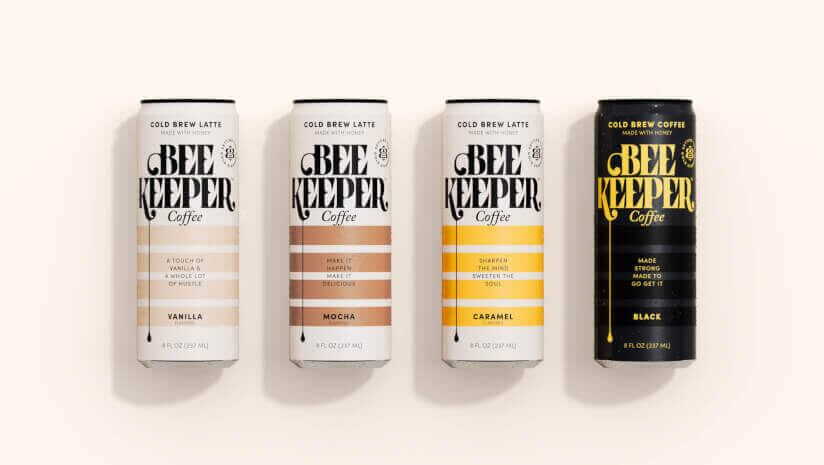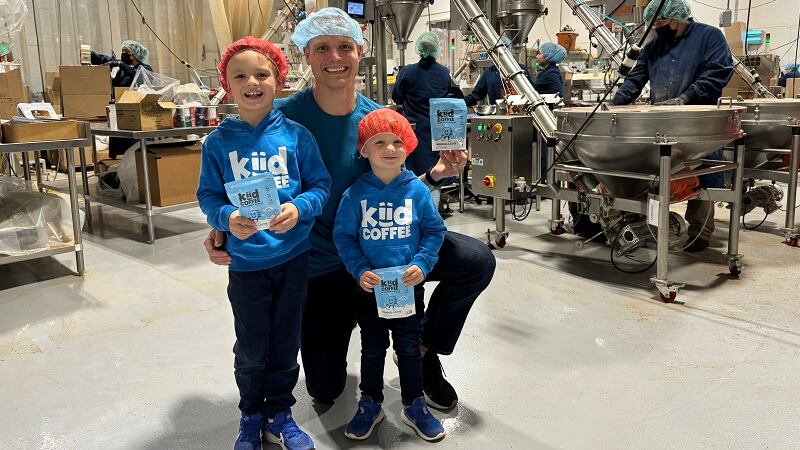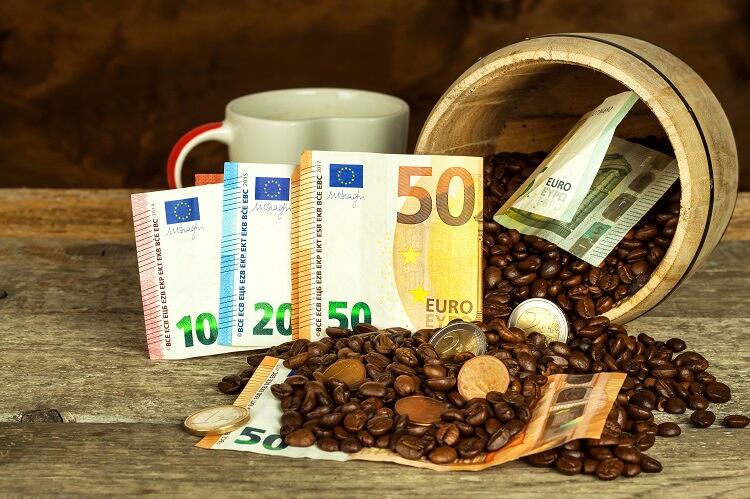When David Creech, along with his co-founders Fara Leff, Paul Rivera and father-son duo, Nate and Andrew Forbes, entered the already-saturated RTD coffee market, the team relied on their extensive backgrounds in brand building and understanding of consumer behavior and culture to differentiate Beekeeper Coffee. Central to the brand’s story is its commitment to creating an experience that blends a modern approach with authenticity – and the decision to use honey as their primary sweetener, rather than simply making "honey-flavored coffee," Creech said.

Young consumers want ‘something simple’ when it comes to coffee
From the beginning, the co-founders’ approach was centered around consumer obsession and rooted in their youth culture observations, Creech said, pointing out that coffee consumption was growing among younger audiences.
In Leff’s work with athletes, she noticed this demographic, especially younger athletes, were swapping their usual hydration beverages for coffee before games and training, Creech shared. However, the complexity of the coffee world was a barrier for many, he added.
“They just wanted something simple,” he said.
Honey as a sweetener, not a flavor
The team was committed to creating a product where honey could balance the bitterness of coffee, but without becoming the dominant flavor.
“We did not want it to taste like honey-flavored coffee, but instead, let the honey’s natural sweetness complement the coffee,” he said.
After numerous product trials, the team landed on a formulation that allowed honey to smooth out the flavor profile in the RTD black coffee, while adding enough sweetness for its RTD lattes. Currently the brand offers Double Black coffee and lattes in Caramel, Mocha and Vanilla in 8-ounce cans. The company sources 100% Guatemalan coffee beans for its lattes and a blend of Guatemalan, Brazilian and Peruvian beans for its Double Black brew.
The brand’s formulation strategy is critical for Beekeeper’s target consumer, many of whom are new to coffee or do not appreciate the bitterness that is often associated with black coffee, Creech said. Honey offered a solution that provided a health halo compared to refined sugars, but also aligned with the brand’s identity – creating a product that stands out without feeling gimmicky, he added.
Partnerships for strategic and organic growth
Partnerships that align with the team’s network and values have been a key pillar of Beekeeper Coffee’s strategy. The brand seeks creative ways to introduce its new products to new audiences, including collaborations with Taco Bell to develop the LTO Horchata Cold Brew Latte to activations at popular events like Zedd in the park in downtown Los Angeles and with tequila brand Lobos 1707 to develop an espresso martini at Super Bowl and various All Star events, Creech said.
“The brand and the co-founders are interwoven. We are not just picking partnerships because they are trendy; we are aligning with people and companies that share our vision” of building brands for the youth with a fresh voice, he explained.
Creech added that their multi-tiered approach has allowed Beekeeper to organically grow their presence across different regions, starting with DTC sales and gradually expanding into wholesale markets.



